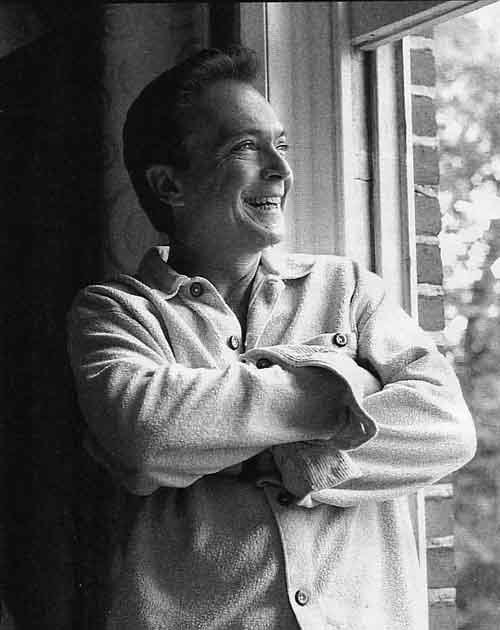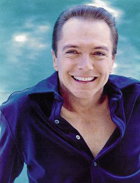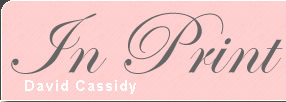
David Cassidy in the News
Best of Times, Worst of Times: David Cassidy
By Sue Fox
January 11, 2004
The Sunday Times Magazine
In the 1970s, the pop star and actor David Cassidy, now 53, was the object of mass adulation. Then two sudden deaths plunged him into a depression that made him give it all up

As an actor and songwriter, if you've never known pain or emptiness, you've nothing to draw on. I guess, through different periods in my life, I've learnt a lot about the human condition. Many of the songs I write are from personal experience - a sense of loss, struggles with relationships which don't work out.
I was 16 when I started out in show business. Most kids my age were going off to school and college. I was putting on a face at 6am every day and going to work. I'd be filming, then in the evenings I was shut up in a recording studio. While my friends were all drinking beer and going to fraternity parties, I was making a lot of money and being very good at the business of being David Cassidy.
People said it must have taken a lot of courage to walk away from my career at 26. But I had to do it. I had everything anyone could want, and I was miserable. I felt there was a hollowness about my success. Instead of it making me feel good about myself, I felt a failure.
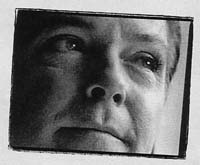
A deep depression - which made me want to give up being David Cassidy - hit me after my father's death in 1976. He was the actor Jack Cassidy. Around that time, my manager, Ruth Aarons, to whom I was very close, became seriously ill. When she died too, I felt this overwhelming sense of loss. I'd always been such a positive, happy person, but my depression was so bad I pretty much became a recluse. Going out would have meant participating in a social life.
The last thing I wanted was to get into a relationship. But somehow I drifted into one - with an actress, Kay Lenz, who'd also lost her father. We got married. It was our losses that drew us close. And that's not a great basis for being together. Kay's a great person, but we should have just stayed friends. We were divorced three years later.
When you're depressed you don't function properly. I felt like I was totally lost. Amazingly, my friends didn't give up on me. The ones who stuck with me are some of my closest friends now. I guess they could see I was going through a process of mourning. Not just for my father and my manager: I was also mourning the loss of my career - even though it was me who gave it up. Some days I didn't even want to get up. It took all my energy to make a cup of tea. I'd go back to my room, sit, think, meditate and play the guitar. But I had no real drive to do anything creative. I was burnt out.
It was George Harrison's song Here Comes the Sun that provided the trigger I needed to help me put my life back into perspective. The words were about George getting back into being a person and not being a kind of demigod as a Beatle. Listening to that song, sitting in my room, made me start to miss my career. It helped me get back my creative energy, and make records again.
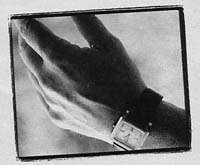
But once again, my schedule was insane. I was constantly on the road. I had no interest and no time for cultivating serious, long-term relationships. I was into one-night stands. I was the guy who said: "Great to meet you. If I pass this way again, maybe I'll look you up." But underneath, I felt emotionally stunted, like I'd never got beyond 19 years old.
But depression takes as long as it takes. You have to go with it. In the end, the only thing that got me out of the black hole was going into analysis. It was an extremely painful journey. But it was also fascinating. And as much as it hurt, having that chance to confront myself gave me a great sense of confidence.
I learnt about who I was, as opposed to what other people thought of me. Analysis also made me come to terms with my own fragility, and the emotional scars of having a father who walked out on us. He'd never been good at being a parent. He was so absorbed in his acting, he didn't appreciate having kids.
In 1987 I met Sue Schrifin [the singer-songwriter] and she really turned things around for me. We began a writing partnership that became extremely successful. Next thing I knew, we'd decided to get married and I was about to become a father. Neither of us had any intention of having kids, but when our son, Beau, was born 12 years ago, it felt kind of like a miracle.
Beau is a much smarter kid than I was. He's academic, athletic and innocent. I have a very vivid memory of how wild I was at his age. Not bad - as in wanting to rob liquor stores - just reckless, hanging out with friends and only interested in chicks and rock'n'roll bands.
Having a son myself has really changed me. It's made every aspect of my life flourish. And although I'm not usually one to pat myself on the back, I attribute the happiness I have now to the path I've taken.
I missed out on a lot in my own teens and early twenties. At 16, I was supposed to be an adult, even though emotionally I was just a child. I don't regret anything, but it's not what I want for my son.
David Cassidy's new CD, A Touch of Blue, is out on Universal. He tours the UK during April and May
